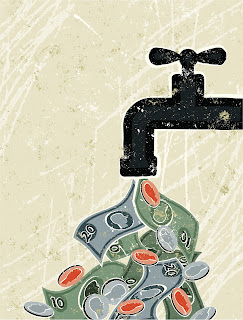In today's rapidly evolving world, financial literacy is a fundamental skill that empowers individuals to make informed decisions about their finances, plan for the future, and achieve their financial goals. While financial literacy is important for everyone, its significance is particularly pronounced for women. In this blog, we'll explore the role of financial literacy for women in modern society, highlighting the benefits it brings and how it can pave the way for greater financial independence and empowerment. Additionally, we'll discuss the opportunities available, such as part-time jobs for ladies, and the importance of understanding options like personal loans for females.
Understanding Financial Literacy for Women:
Financial literacy encompasses a range of skills and knowledge, including understanding budgeting, saving, investing, managing debt, and planning for retirement. For women, being financially literate is essential for several reasons:
Financial Independence: Financial literacy empowers women to take control of their financial futures, reducing dependence on others for financial support and decision-making. It enables them to build their wealth, pursue their goals, and navigate life's financial challenges with confidence.
Equal Opportunities: In many societies, women still face disparities in income, employment opportunities, and access to financial resources. Acquiring financial literacy for women can level the playing field and seize opportunities for career advancement, entrepreneurship, and economic empowerment.
Risk Management: Financial literacy equips women with the knowledge to effectively manage financial risks and protect themselves against unforeseen events such as job loss, illness, or divorce. It enables them to make informed decisions about insurance, emergency funds, and other risk-mitigation strategies.
Planning for the Future: From saving for retirement to planning for major life events like buying a home or starting a family, financial literacy enables women to set realistic financial goals and develop actionable plans to achieve them. It provides the foundation for long-term financial security and stability.
Part-Time Jobs for Ladies:
Part-time jobs offer women flexibility, supplemental income, and valuable work experience. In today's gig economy, there are numerous part-time job opportunities tailored to women's skills, interests, and schedules. Some popular part time job for ladies include:
Freelancing: Women with skills in writing, graphic design, programming, or marketing can explore freelancing opportunities on platforms like Upwork, Freelancer, or Fiverr. Freelancing allows them to work on projects remotely and set their own hours.
Consulting: Experienced professionals can leverage their expertise by offering consulting services in areas such as business, career development, marketing, or finance. Consulting offers flexible hours and the opportunity to work with diverse clients.
Online Selling: Women interested in entrepreneurship can start their own online businesses by selling handmade crafts, vintage items, clothing, or beauty products on platforms like Etsy, eBay, or Shopify. Online selling allows them to reach a global audience and manage their business from home.
Tutoring: Women with teaching experience or expertise in a particular subject can offer tutoring services to students in their local community or online. Tutoring provides flexible hours and the satisfaction of helping others learn and succeed.
Understanding Personal Loans for Females:
Personal loan for female can be a valuable financial tool for women seeking to fund various expenses, such as education, home improvements, or unexpected emergencies. However, it's essential to understand how personal loans work and their implications:
Interest Rates and Terms: Before applying for a personal loan, women should compare interest rates, loan terms, and repayment options from multiple lenders to find the most favorable terms. Understanding the total cost of borrowing and the repayment schedule is crucial to avoid overextending financially.
Credit Score: Lenders evaluate applicants' creditworthiness based on their credit score, income, and debt-to-income ratio. Women should review their credit reports regularly, identify any errors or discrepancies, and take steps to improve their credit scores if necessary before applying for a personal loan.
Borrowing Responsibly: While personal loans can provide quick access to funds, women should borrow only what they need and can afford to repay comfortably. It's important to have a clear purpose for the loan and to avoid using it for discretionary expenses or non-essential purchases.
Repayment Strategies: Women should develop a repayment strategy to pay off the loan efficiently and minimize interest charges. Making regular, on-time payments and considering options such as automatic payments or bi-weekly payments can help accelerate debt repayment and improve financial stability.
Conclusion:
Financial literacy is a cornerstone of women's empowerment and economic independence in modern society. By equipping women with the knowledge and skills to manage their finances effectively, financial literacy opens doors to greater opportunities, security, and freedom. From understanding part-time job opportunities to navigating options like personal loans, women can take control of their financial futures and build a solid foundation for success. As we continue to strive for gender equality and economic empowerment, investing in financial literacy for women is not just a necessity but a catalyst for positive change and progress.















